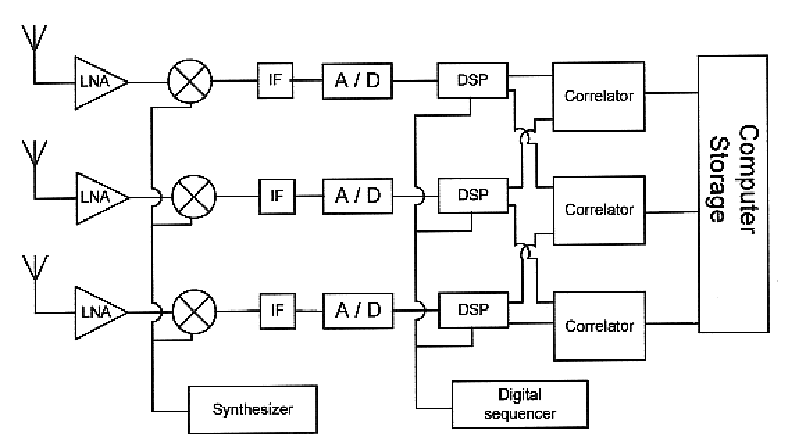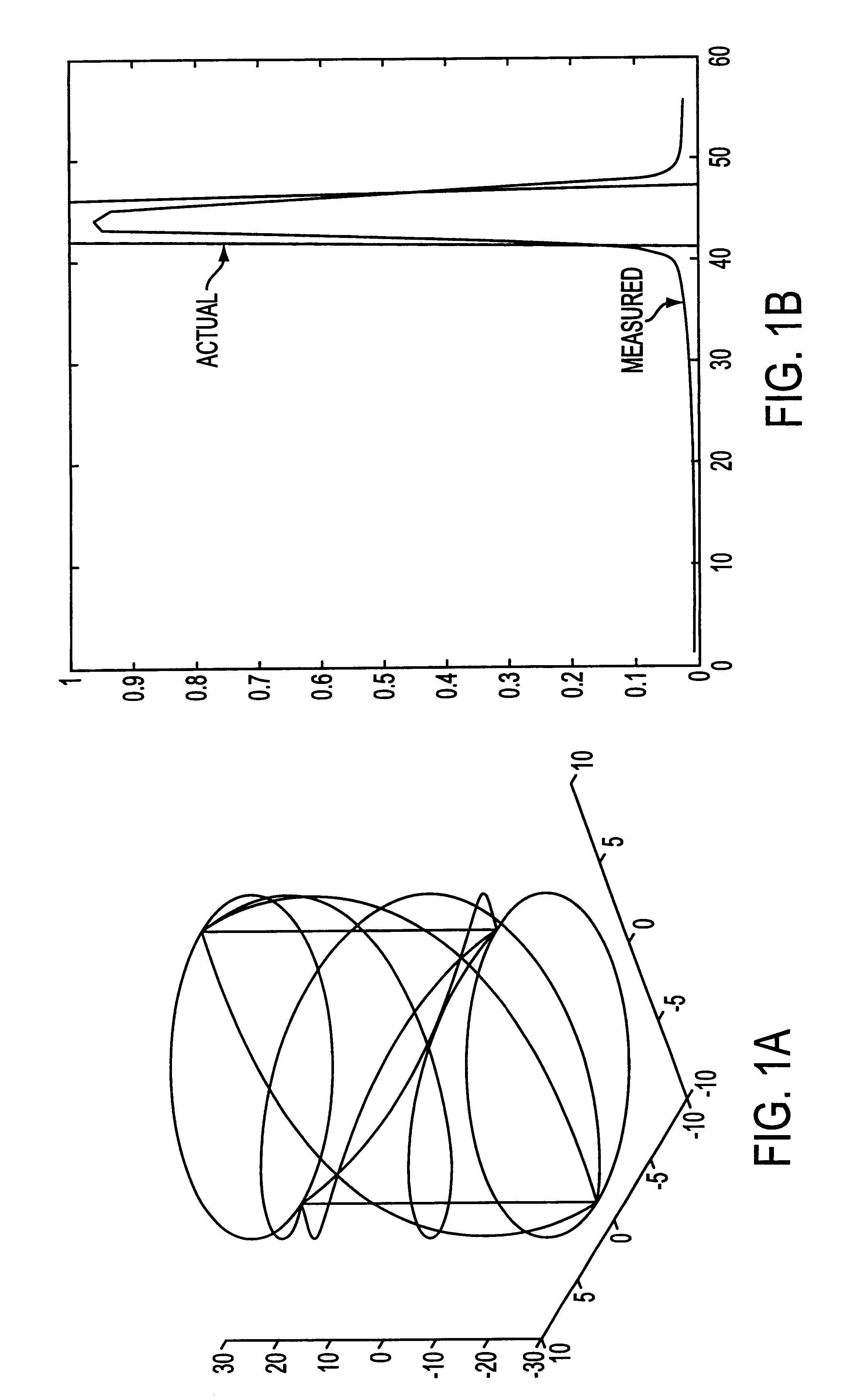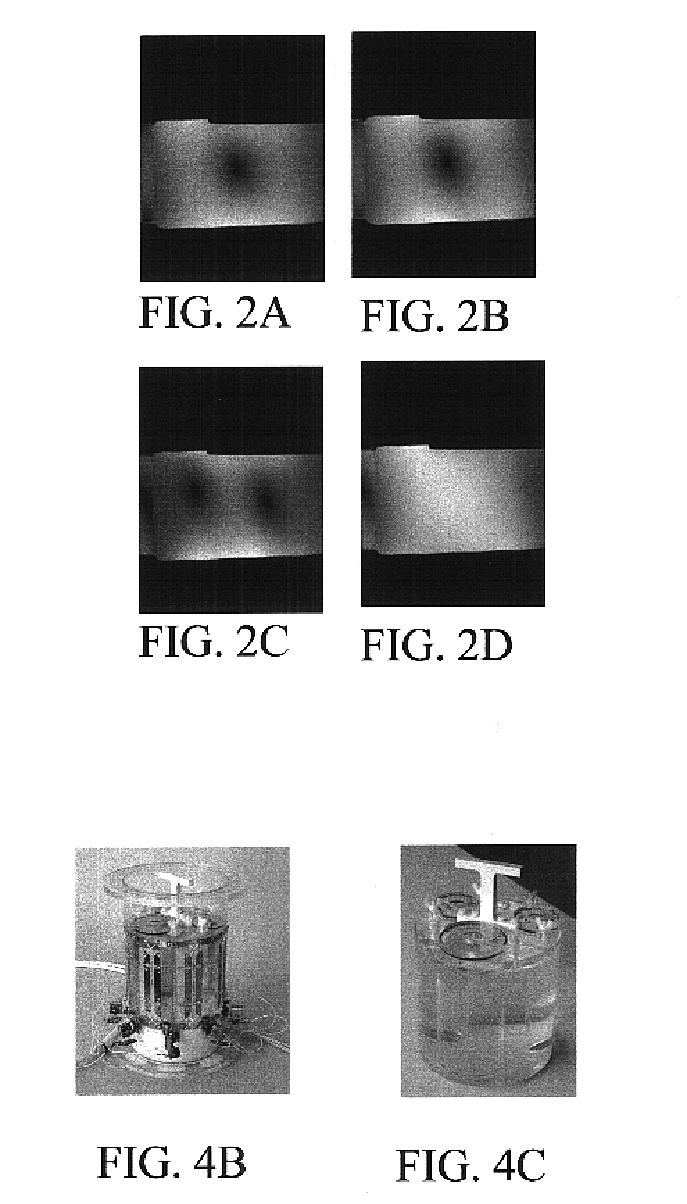Method and apparatus for noise tomography
a technology of noise tomography and methods, applied in the field of methods and apparatus for noise tomography, can solve problems such as the difference between traditional methods and encoding functions
- Summary
- Abstract
- Description
- Claims
- Application Information
AI Technical Summary
Benefits of technology
Problems solved by technology
Method used
Image
Examples
example 1
A one-dimensional experiment was preformed using a four-coil FACT array, with a length of 55 cm long and diameter of 18 cm. The electromagnetic fields in the sample region for each of the four elements and the z dependence of the six independent values in the covariance matrix with respect to the insertion of a cylindrically symmetric phantom into the coils. The z dependence of normalized noise covariance matrix in this calculation is assumed to be proportional to ∫{right arrow over (E)}k·σ·{right arrow over (E)}m*rdrdθ. This assumption comes from the reciprocity theorem which relates the voltage detected on each channel, for an arbitrary current, J, at some location within the sample, will be proportional to J·Ek, where Ek, is the electric field generated by a unitary amplitude oscillating current on the kth probe. Using the assumption that the local current distribution within the sample can be described by a Thevenin's current source equivalent circuit for the Nyquist / Johnson mod...
example 2
One-Dimensional Embodiment of the Subject MR-NT Technique
In a one dimensional embodiment of the subject MR-NT method and apparatus, a coil array was utilized. The coil array uses Fourier Array Coil Technology (FACT) [DGR], pioneered by MRI Devices Corporation. of the coil array can also incorporate one or more versions of a spiral birdcage introduced by Alsop, et al [ACM]. A spiral birdcage coil can produce a magnetic field that is nearly sinusoidal in the X and Y directions. Because the sines and cosines form an orthogonal basis, and if the endring currents are ignored, noise sensitivity functions for multiple FACT coils with different spatial frequencies should form a nearly orthogonal set for a uniform sample.
A FACT coil array consisting of four coils including a −π rotation, a 0 rotation, a +π rotation and a 2π rotation, as shown in FIG. 3-1, was used in the one-dimensional experiment of the MR-NT technique.
With supplemental isolation methods, adequate isolation from inductive c...
example 3
Two Dimensional Experiment of the Subject MR-NT Method and Apparatus
A specific phantom and coil array were produced to be used in conjunction with a 1.5 T 8 channel MRI system. A two-dimensional test of the subject MR-NT method was preformed using an RF array, as shown in FIG. 4B, that was based on an eight-channel MRI head coil by MRI Devices Corporation. The array incorporates eight resonance tuned loop probes, each loop sweeping an angle of 57 degrees, with a height of 180 mm. The coil array was constructed on a 215.9 mm(8.5″) OD Acrylic tube. Each of the coils was overlapped with its nearest neighbors, providing approximately 20 dB of isolation from its nearest neighbors. This coil is a poor design for MR-NT for the same reason that it is a good design for an MRI coil: because of the symmetrical design, the electric field at the center of the coil is zero. The coil does have significant electric fields in the perimeter, and the phantom was designed with this in mind.
In order to ...
PUM
 Login to View More
Login to View More Abstract
Description
Claims
Application Information
 Login to View More
Login to View More - R&D
- Intellectual Property
- Life Sciences
- Materials
- Tech Scout
- Unparalleled Data Quality
- Higher Quality Content
- 60% Fewer Hallucinations
Browse by: Latest US Patents, China's latest patents, Technical Efficacy Thesaurus, Application Domain, Technology Topic, Popular Technical Reports.
© 2025 PatSnap. All rights reserved.Legal|Privacy policy|Modern Slavery Act Transparency Statement|Sitemap|About US| Contact US: help@patsnap.com



